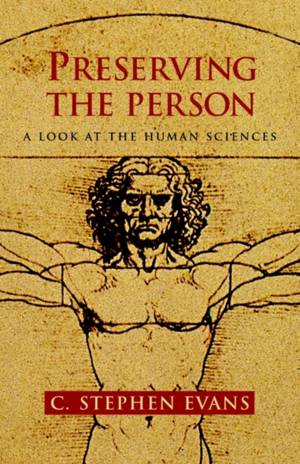
Je cadeautjes zeker op tijd in huis hebben voor de feestdagen? Kom langs in onze winkels en vind het perfecte geschenk!
- Afhalen na 1 uur in een winkel met voorraad
- Gratis thuislevering in België vanaf € 30
- Ruim aanbod met 7 miljoen producten
Je cadeautjes zeker op tijd in huis hebben voor de feestdagen? Kom langs in onze winkels en vind het perfecte geschenk!
- Afhalen na 1 uur in een winkel met voorraad
- Gratis thuislevering in België vanaf € 30
- Ruim aanbod met 7 miljoen producten
Zoeken
€ 18,45
+ 36 punten
Omschrijving
The human quest for self-understanding is ancient. It transcends the boundaries between ordinary folk and philosophers and it over- laps with many academic disciplines, including psychology, sociology, philosophy and theology. Actually, the quest is not essentially academic; it is a human quest, pursued by persons in every age. With this in mind, philosopher C. Stephen Evans takes a look at the human sciences and their contribution to this self-understanding. Evans first presents a basic problem in these sciences today: the attack on the concept of personhood. He reviews the contemporary understanding of mind and brain: Is a person only a thinking machine or a programmed organism? Then he evaluates the impact of Auguste Comte, Sigmund Freud, J.B. Watson, B.F. Skinner and Emile Durkheim on what Evans terms ?
Specificaties
Betrokkenen
- Auteur(s):
- Uitgeverij:
Inhoud
- Aantal bladzijden:
- 180
- Taal:
- Engels
Eigenschappen
- Productcode (EAN):
- 9781573830263
- Verschijningsdatum:
- 1/01/1985
- Uitvoering:
- Paperback
- Formaat:
- Trade paperback (VS)
- Afmetingen:
- 140 mm x 218 mm
- Gewicht:
- 249 g

Alleen bij Standaard Boekhandel
+ 36 punten op je klantenkaart van Standaard Boekhandel
Beoordelingen
We publiceren alleen reviews die voldoen aan de voorwaarden voor reviews. Bekijk onze voorwaarden voor reviews.









